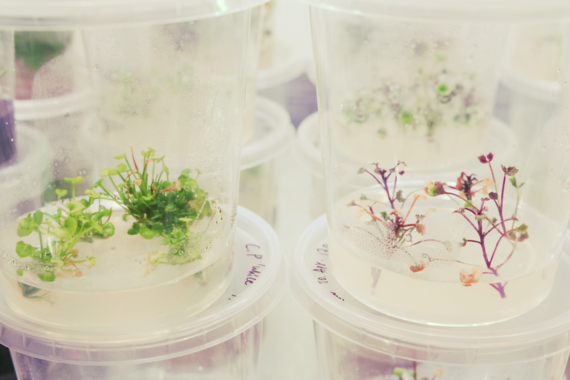
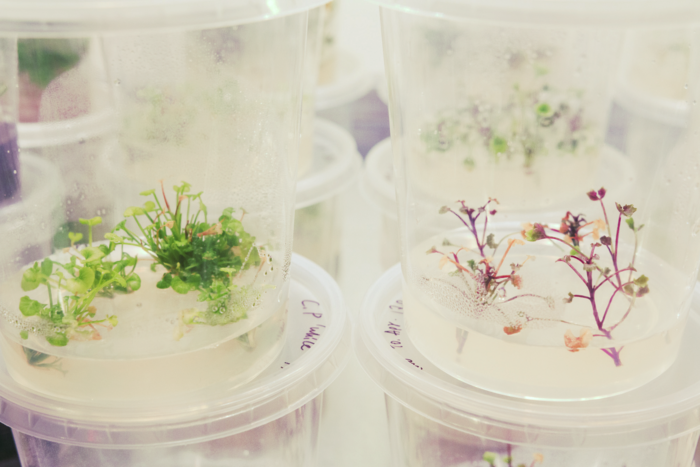
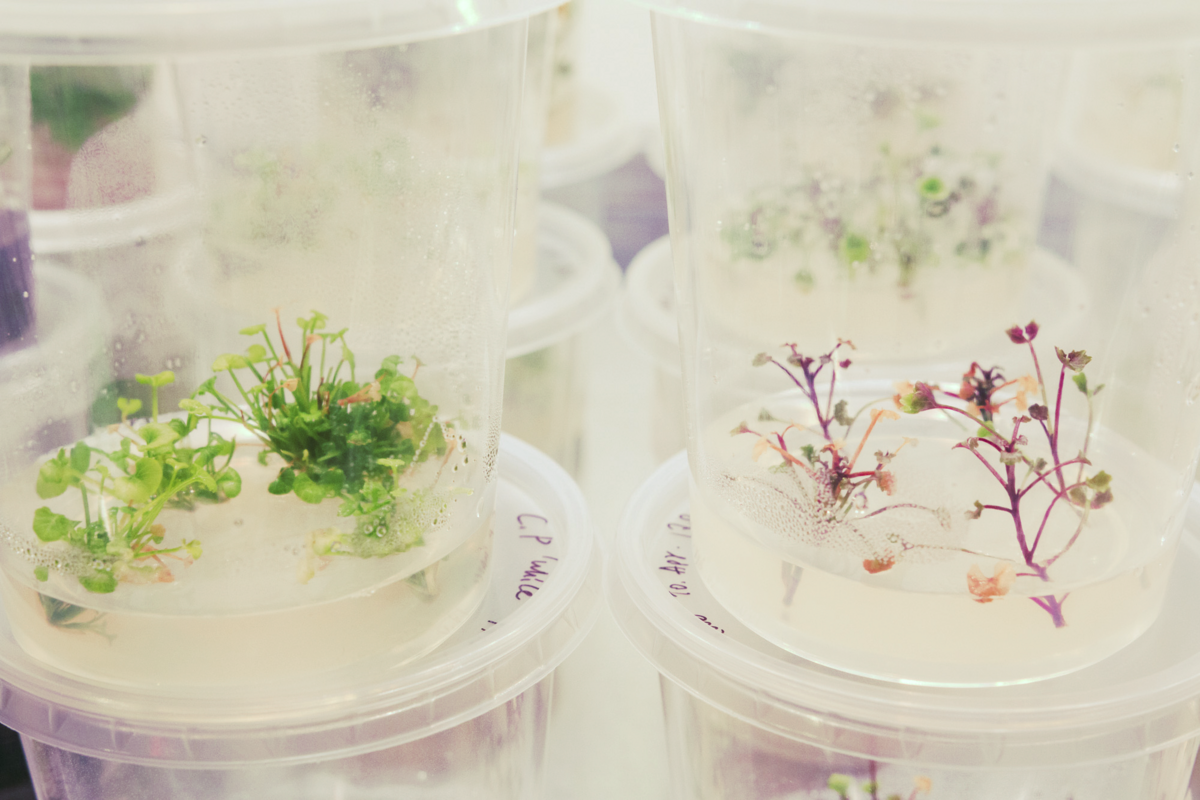
The research of the Section Floriculture focuses mainly on three areas, such as improvement of postharvest characteristics in ornamental plants, growth regulation and use of modern in vitro and techniques in plant biotechnology, including CRISPR/Cas9, for genetic modifications towards better quality of ornamentals. The selected research topics contribute to basic and applied research, leading to development of strategies for quality improvement of investigated ornamental model plants.
Improvement of postharvest characteristics in ornamental plants
Display life and post-production quality of ornamental plants are most often reduced by presence of ethylene in the environment through known physiological effects, such as bud and flower wilting and abortion, frequently alone or in combination with leaf drop or yellowing. In our studies we used the most effective approaches which operate by interfering with the plant’s response to ethylene by blocking the ethylene binding sites or by preventing triggered plant responses following the binding ethylene to its sites.
The ethylene receptor etr1-1 (ETHYLENE RESPONSE 1) mutant gene from Arabidopsis thaliana, with its expression either under the control of the Petunia‘s floral binding protein FBP1 or the Arabidopsis senescence-specific SAG12 gene promoters, was introduced into several flowering potted plants, such as Pelargonium zonale, Campanula carpatica, Kalanchoë blossfeldiana, some orchids and cacti. The heterologous expression of these transgenes and the response of flowers or/and leaves to exogenous ethylene were then studied. Etr1-1 effectively prevented flower wilting and leaf yellowing depending on the performance of promoters which we used in our studies.
Secondly, 1-MCP (1-methylcyclopropene) has been shown as an effective and environmentally safe molecule which has ability of binding to ethylene receptor, blocking it permanently and in this way preventing ethylene responses. In a range of studies, we have shown effect of this compound on improvement of postharvest characteristics in popular flowering potted plants. In recent studies we proved a spectacular effect on postproduction appearance of single florets for two Phalaenopsis breeding lines treated with HarvistaTM (sprayable formulation of 1-MCP) and 1-MCP released from SmartFreshTM (powder formulation realising gas) compared to the untreated control flowers.
Growth regulation in ornamental plants
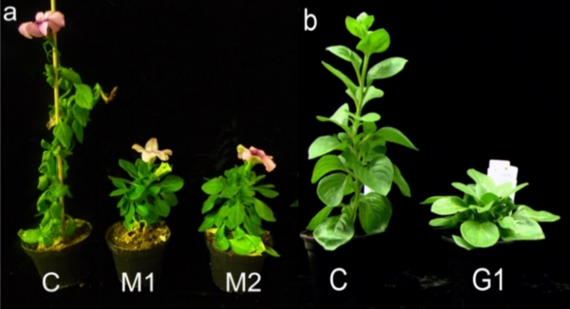
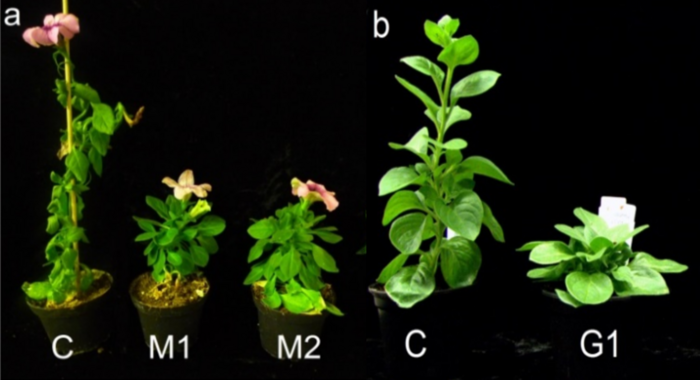
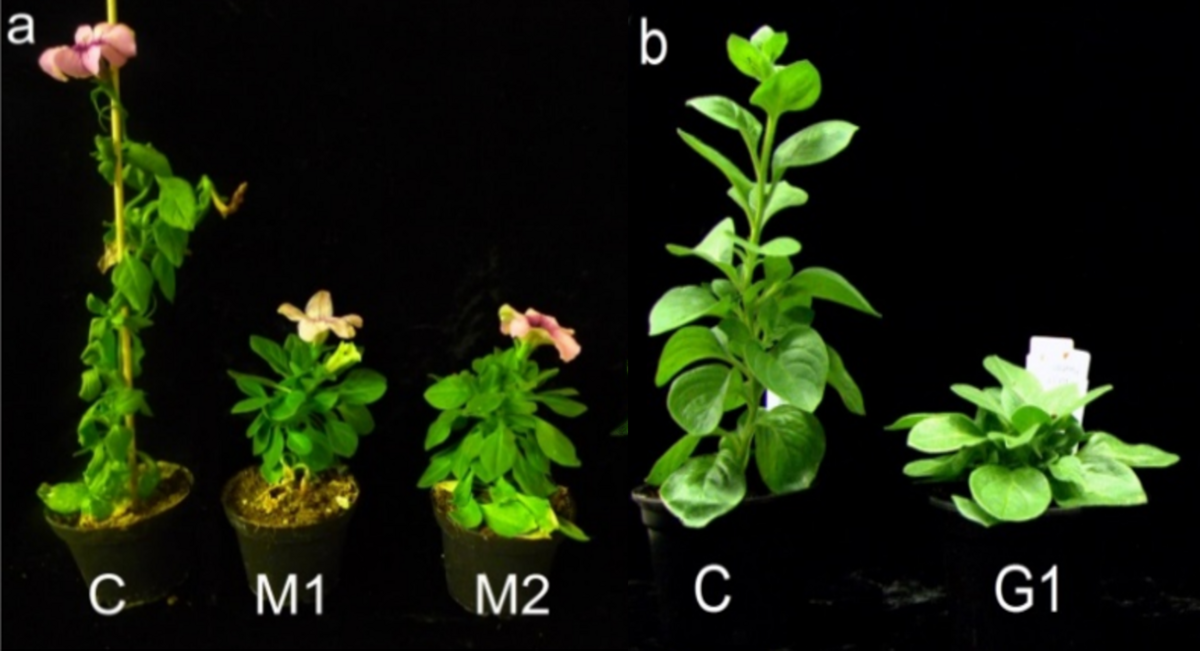
One of the most important quality characteristics for the attractiveness and transportation of potted and bedding ornamentals is compact growth. The commercial treatments for achieving a compact growth in ornamentals includes chemical plant growth regulators, which are hazardous for environment and human health. In our studies we focused on establishing of alternative methods to influence undesired stem elongation in selected model ornamental plants.
In our studies we proved that one of the effective methods for growth regulation in ornamentals can be achieved by manipulation of MKS1 gene expression from Arabidopsis thaliana used in Kalanchoë blossfeldiana and Petunia hybrida phenotypes. Transgenic lines of Kalanchoë and Petunia grown under greenhouse condition expressed significantly shorter internodes length compared to wild type plants. Similar results were achieved by overexpressing GA2ox gene from Nicotiana tabacum in Kalanchoë and Petunia. The constitutive overexpression leads to compact phenotypes of both investigated species, however delayed flowering has been observed as a negative side effect.
As an alternative to environmentally hazardous synthetic growth regulators, we examined the possibility of using ethanol as a novel growth regulator in Kalanchoë, Petunia and Campanula flowering potted plants. Different methods and timing of applications were investigated. Our results proved ethanol as an effective and non-hazardous treatment for achievement compact growth in investigated plant species.


